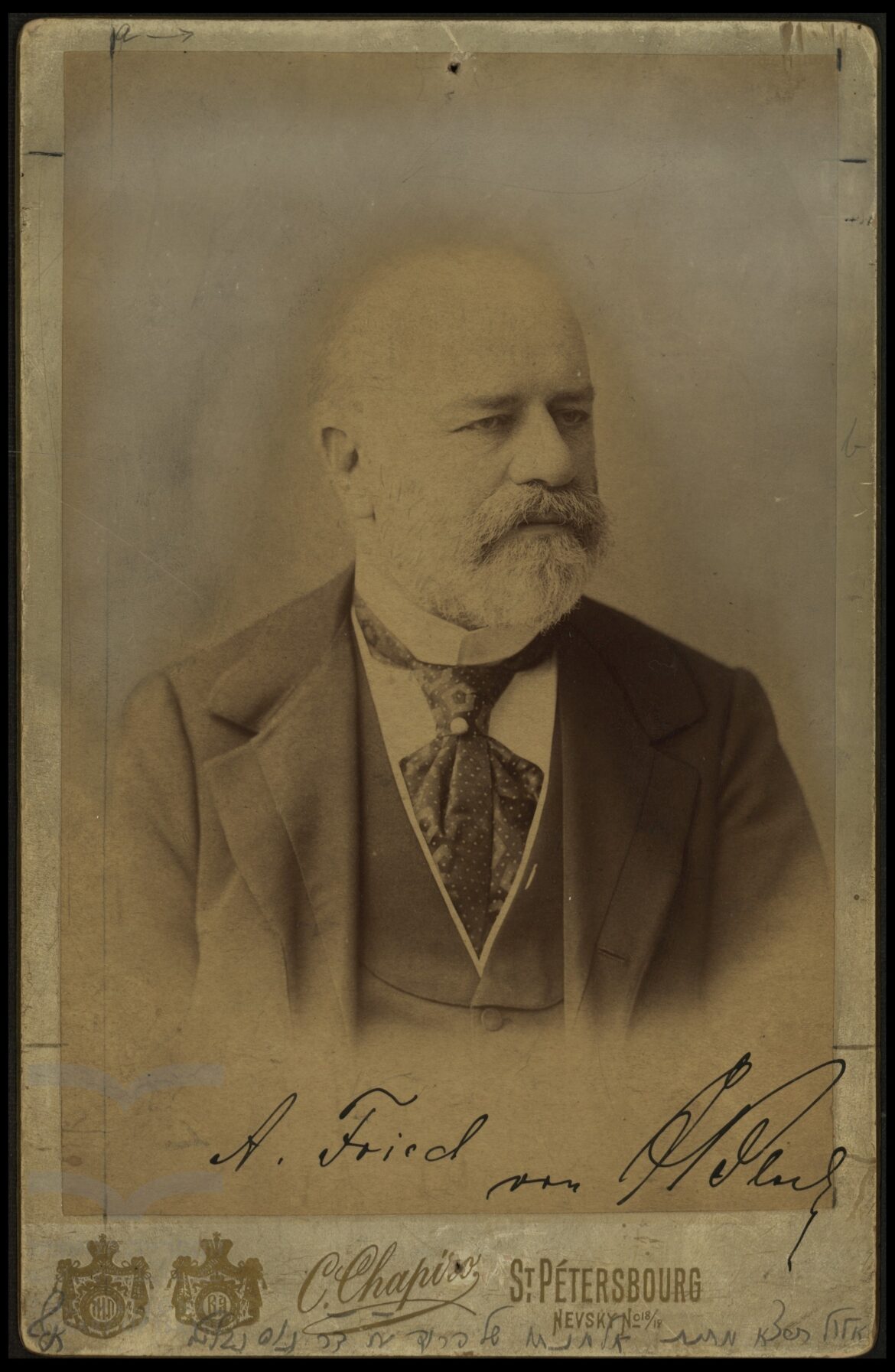The founder of the largest fortune in the Kingdom of Poland (Russian partition) gained his position thanks to huge railway investments, which significantly accelerated the economic development of Poland’s territories. Jan Gotlib Bloch was involved not only in various industrial ventures. He also worked scientifically and published works on railways, finance, industry, and agriculture. For his pacifist activities, he was nominated for the first Nobel Peace Prize in Polish history.
J.G. Bloch was born in Radom into the Jewish family of the owner of a small dye house for woollen goods. After graduating from a real school, he began an apprenticeship in a bank exchange office. At the age of fifteen he converted to Calvinism and five years later to Catholicism. Around 1856 he moved to St Petersburg and within a few years became a railway entrepreneur.
He earned his first big money by carrying out construction work on the emerging Warsaw-Petersburg Railway. In addition to multiplying his wealth, Bloch took care to establish numerous business and social contacts, for example in the spheres of the Russian government elite. To make up for his lack of education and manners, he went to Berlin to study. In 1862, he married the daughter of Henryk Kronenberg (Leopold’s youngest brother), Emilia.
On his return to Poland, he set up his own banking house and invested the money he had earned in various industrial ventures, including a steam mill, bakeries, and sugar refineries. In 1865 Bloch obtained a concession for the construction of the Łódź Factory Railway, which opened Łódź to the world. He built it at an express pace – one kilometre a day. Between 1869 and 1871, he built a railway connection between Liepaja and the Warsaw-Petersburg Railway.
In the early 1870s he became president of the South-Western Railway Company. In 1885, he opened the line of the Ivangorod-Dabrowa Railway, some 462 km long, connecting Dęblin and the Old Polish Industrial District with the Dąbrowa Basin. Towards the end of his life, Bloch was a very active pacifist activist and philanthropist. He wrote the seven-volume work The Future War in Technical, Economic and Political Terms (1893-1898). He also founded the Museum of War and Peace in Switzerland.





